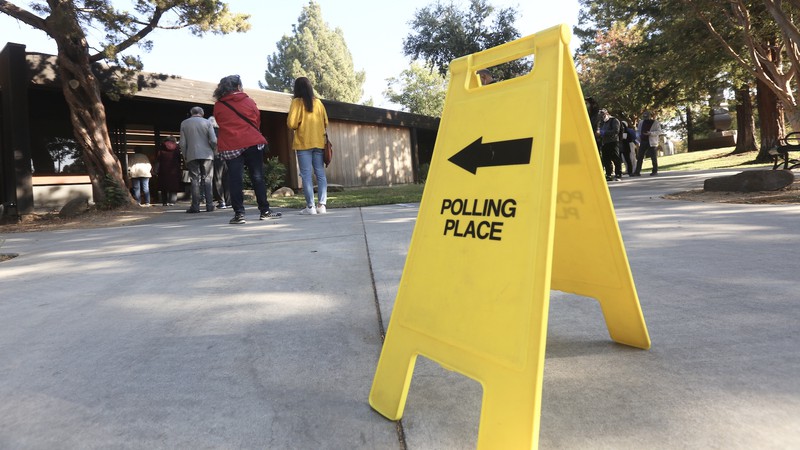And more bills are on the way to help you make your mark on Election Day.

California continues to work on legislation that would make voting easier. Owen Rancher / Wikimedia Commons C.C. 4.0 Share-Alike
When it comes to voting rights, California can proudly call itself a leader—at least compared to most of the rest of the United States. As of October 2021, according to a survey by the Brennan Center for Justice, legislators in 49 states had pushed 425 bills that contained provisions to restrict voting.
By the end of September, when all but seven states had wrapped up their 2021 legislative sessions, 19 of those states had passed 33 different laws making it harder for American voters to cast their ballots, according to the Brennan Center survey. The slew of new, voting-restrictive laws led the International Institute for Democracy and Electoral Assistance, a Stockholm-based think tank, to classify the United States as a “backsliding democracy”—the first time the U.S. had been ranked as anything but a full, functioning democracy.
California, on the other hand, keeps on taking legislative steps that place the state among the most voter-friendly in the country. In a 2020 study by Northern Illinois University political scientist Scot Schraufnagel and two collaborators,California ranked 10th in the nation for ease of voting.
The state has 18 bills pertaining to voter rights and ballot access in the 2021 legislative pipeline, according to the Voting Rights Lab, a national organization that tracks voting legislation and advocates “to secure, protect, and defend the voting rights of all Americans.”
Of those 18 bills, the Voting Rights Lab rates 10 as “pro-voter,” three as “neutral,” four as “mixed or unclear” and only one as definitively “anti-voter.” That one “anti-voter” bill was introduced by the former leader of the state senate’s Republicans. That would be SB597, authored by Republican Sen. Shannon Grove of Bakersfield, which would require mail-in voters to write the last four digits of their California driver’s license number, state ID, or social security number on the ballot envelope (though the digits would be covered up before mailing).
Local election officials would be required to verify that the numbers matched the name of the voter before the vote could be counted. The bill was scheduled for a committee debate on April 12, but Grove requested that the debate be canceled, and the bill appears to be headed nowhere.
One of the “pro-voter” bills, SB 29, was passed by the legislature and approved by Newsom on Feb. 19, 2021. The bill was authored by first-term Orange County Democratic Senator Tom Umberg, and extended a law signed by Newson the previous June requiring that mail-in ballots be mailed to every registered voter. The mail-in ballots under the new law were sent out for all 2021 elections as well—including the September vote on whether or not to recall Newsom.
The other “pro-voter” bills either now law or still under consideration include the following:
California Wasn’t Always Voter-Friendly
California was not always a cutting-edge leader in promoting voter access, sadly. In fact, for more than 100 years of the state’s existence, California was a grim place for democracy.
According to a report published in September 2020 by the UCLA Luskin Center for History and Policy, for the first century of its existence as a state, “California limited access to the franchise, excluding non-whites and using the tools of voter suppression to prevent ‘voter fraud’ by minorities and the poor.”
In fact, California until the late 1950s “employed some of the same tools used under the Jim Crow regime in the south in the 19th and early 20th centuries,” according to the UCLA report. But though the tactics were directed at all minorities, they were aimed not mainly at African-American voters, but at Chinese immigrants.
Since that time, the state has made “significant changes” to expand access to voting, the report says. But even today “the effective exercise of the franchise is not yet equally available to all.”
Long form articles which explain how something works, or provide context or background information about a current issue or topic.